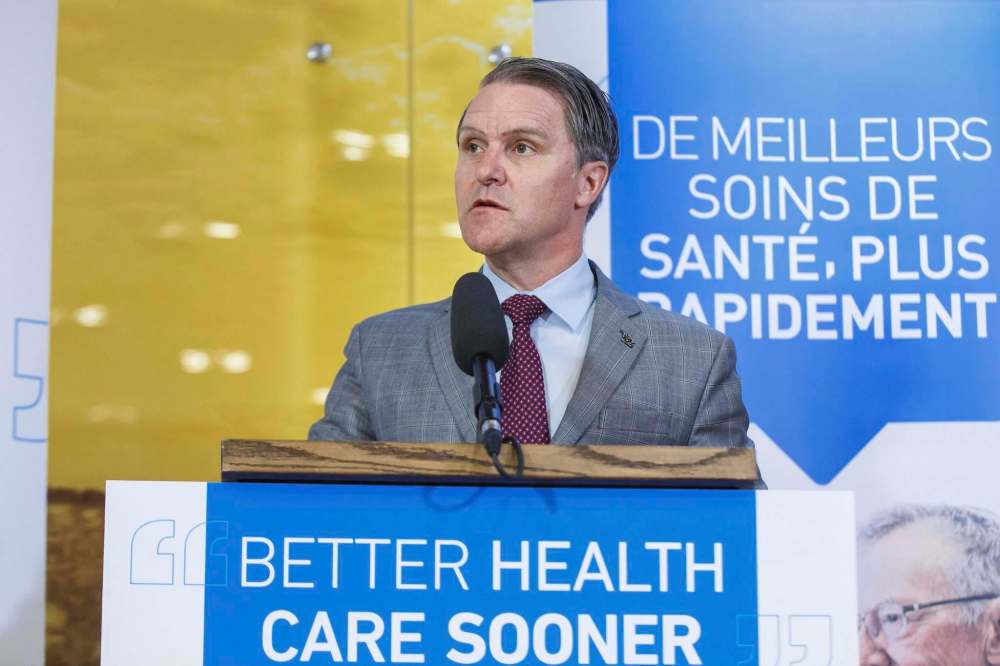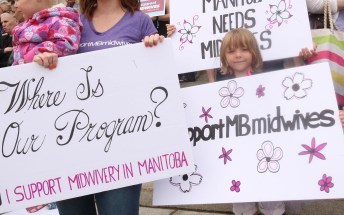Province’s inaction on midwifery is puzzling
Read this article for free:
or
Already have an account? Log in here »
To continue reading, please subscribe:
Monthly Digital Subscription
$0 for the first 4 weeks*
- Enjoy unlimited reading on winnipegfreepress.com
- Read the E-Edition, our digital replica newspaper
- Access News Break, our award-winning app
- Play interactive puzzles
*No charge for 4 weeks then price increases to the regular rate of $19.00 plus GST every four weeks. Offer available to new and qualified returning subscribers only. Cancel any time.
Monthly Digital Subscription
$4.75/week*
- Enjoy unlimited reading on winnipegfreepress.com
- Read the E-Edition, our digital replica newspaper
- Access News Break, our award-winning app
- Play interactive puzzles
*Billed as $19 plus GST every four weeks. Cancel any time.
To continue reading, please subscribe:
Add Free Press access to your Brandon Sun subscription for only an additional
$1 for the first 4 weeks*
*Your next subscription payment will increase by $1.00 and you will be charged $16.99 plus GST for four weeks. After four weeks, your payment will increase to $23.99 plus GST every four weeks.
Read unlimited articles for free today:
or
Already have an account? Log in here »
Hey there, time traveller!
This article was published 04/07/2019 (2353 days ago), so information in it may no longer be current.
As Manitoba’s midwifery program descends into apparent chaos, the Progressive Conservative government of Manitoba has responded with what seems to be a deafening indifference. The province needs to explain why it is so unmoved by an issue that should be at the very heart of health-care reform.
There are slightly more than 50 midwives practising in Manitoba. The Midwives Association of Manitoba has estimated that 50 per cent of women who request a midwife are ultimately denied because of a shortage of resources in their communities or regions. Expectant Winnipeg mothers are more likely to get a midwife; government figures show only 10 per cent of their requests are denied because of the lack of an available midwife. That number goes up significantly, however, in smaller cities and towns, and in rural and remote regions.
In that context, it was shocking to learn that of 12 new midwives graduated from the University of Manitoba, in a program administered by Hamilton-based McMaster University, only two have jobs — both in Thompson — leaving the rest to look for work in other provinces.

And yet in the face of intense criticism over this situation, Health Minister Cameron Friesen could only summon what might be described as patient disregard.
A statement issued on Mr. Friesen’s behalf expressed tacit support for midwives as a component of the province’s maternal health services, but made no pledge to keep the other midwifery graduates at home by filling an immediate need. While Mr. Friesen dithers on the issue, however, the state of midwifery services languishes.
Of particular concern is the fact that given the shortage of the resource, no one knows for sure how many women might use a midwife. Expectant mothers know it can be difficult to be matched with a midwife — so much so that health-care officials have acknowledged that many mothers-to-be won’t even inquire about the possibility.
Mr. Friesen’s inaction is puzzling because midwifery services are exactly the kind of resource the province claims it needs to reform health care.
To date, the PC government of Premier Brian Pallister has undertaken profound and painful change in Winnipeg hospitals — closing up to three emergency rooms and reallocating many other hospital programs — with the goal of better outcomes and greater cost-efficiency. The blueprint for these changes was the 2017 provincewide analysis of health-care, which was conducted by Nova Scotia-based health-care consultant Dr. David Peachey. A deep dive into his report reveals a good deal of support for the expansion of midwifery services.
Of particular concern is the fact that given the shortage of the resource, no one knows for sure how many women might use a midwife.
According to Dr. Peachey, midwifery services are low-risk, cost-efficient and, in many instances, provide care that exceeds what is available in hospitals, particularly when it comes to postpartum support. However, Dr. Peachey also found that Manitoba lags well behind other provinces in providing access to midwives. Not surprisingly, he recommended an expansion of the midwifery program.
There is more than enough evidence for Mr. Friesen to immediately provide funding to keep the 10 remaining midwifery graduates in Manitoba. Taxpayers have already invested substantially in their training, and it would be a lamentable waste of financial resources to allow them to migrate to neighbouring jurisdictions.
The Pallister government says it’s dedicated to fixing the province’s health-care system. Hiring 10 additional midwives is a prime opportunity to demonstrate that its actions back up its words.










